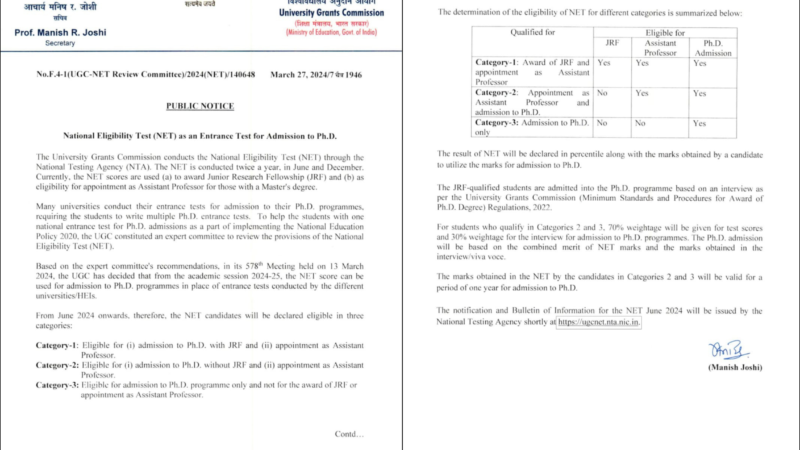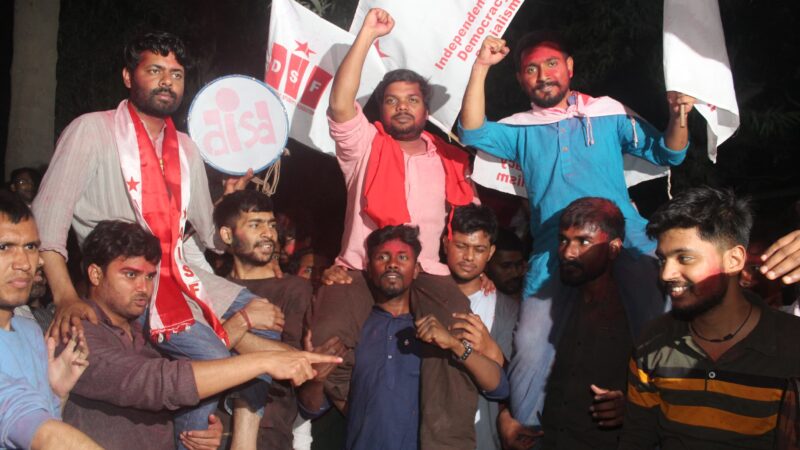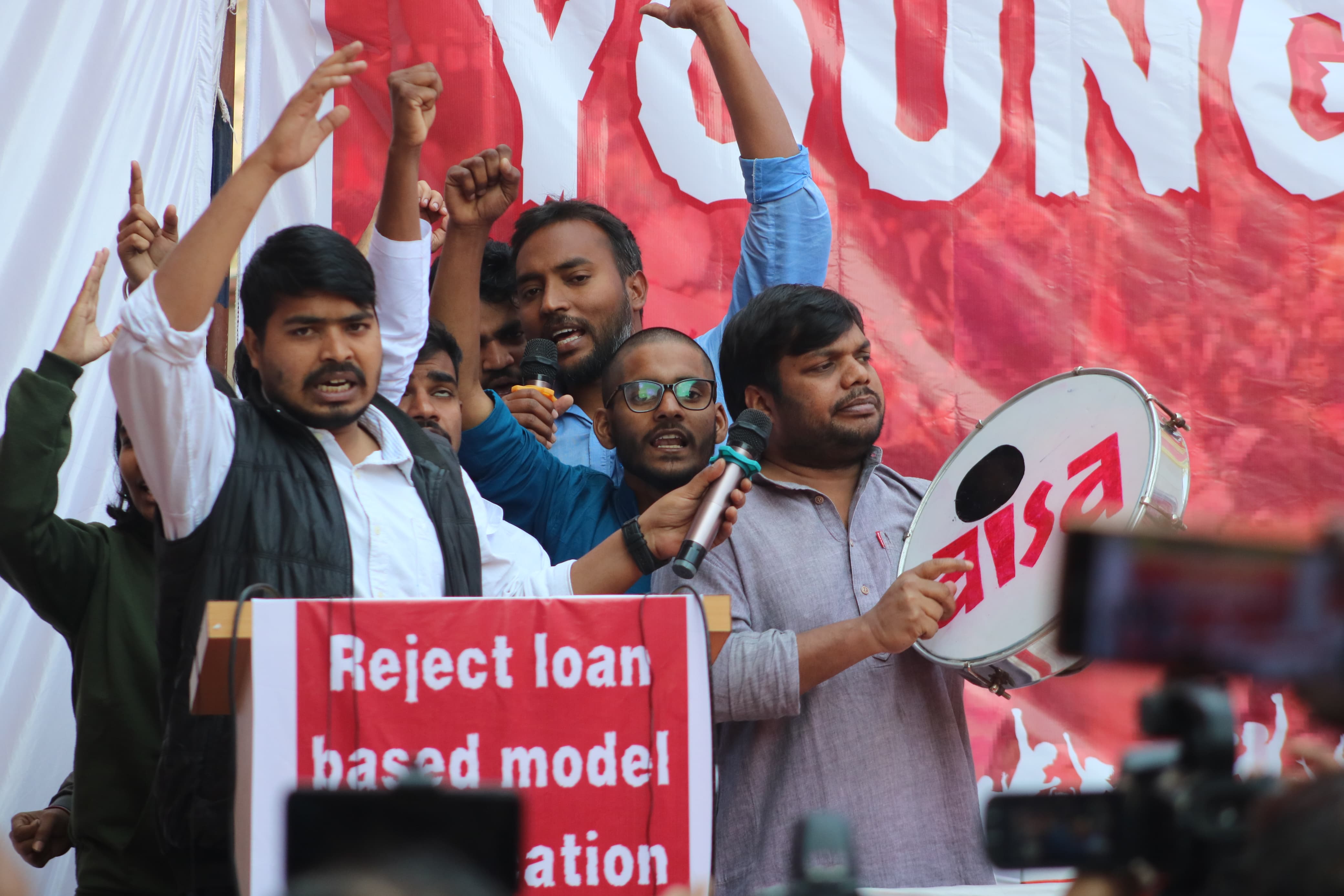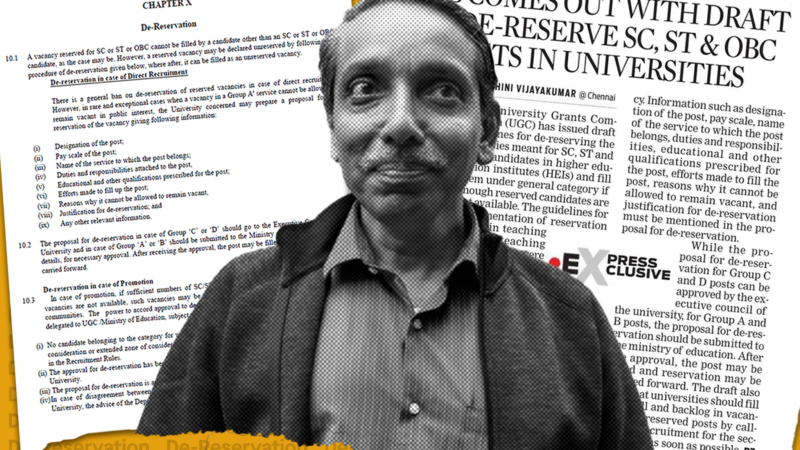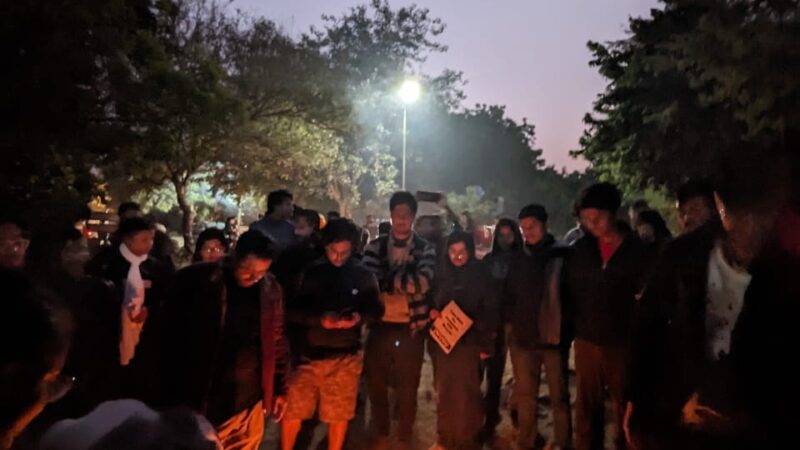Nagaland atrocity rekindles the call for repeal of the draconian AFSPA
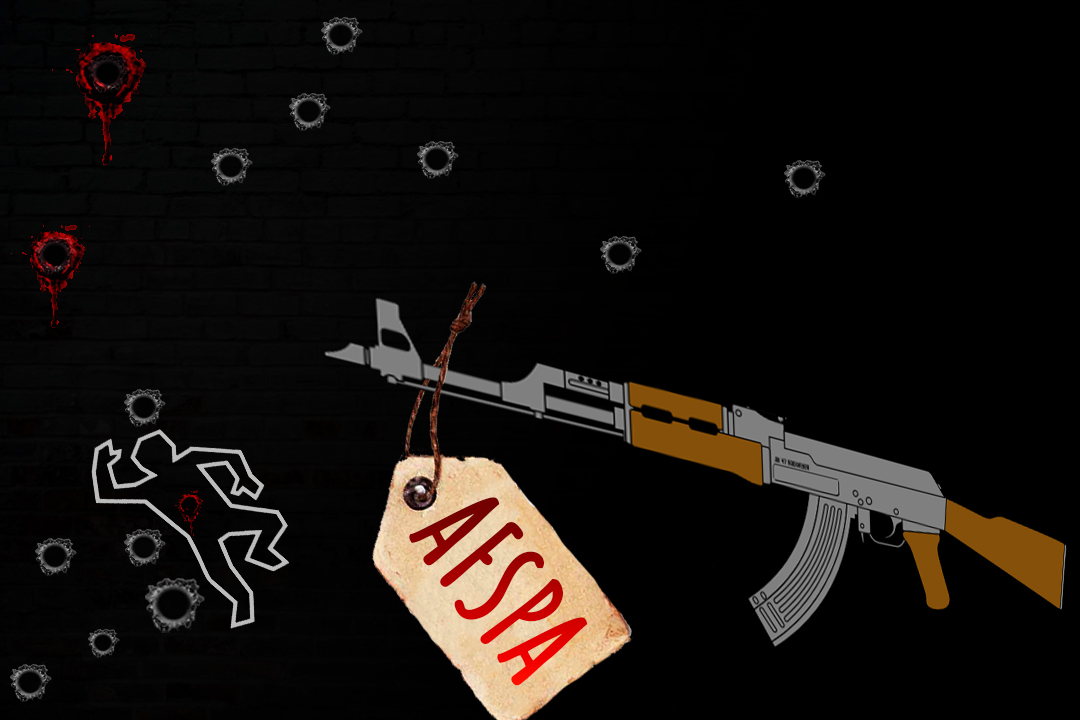
On 4th December, army personnel belonging to the Assam Rifles fired upon unarmed civilians in Mon district, Nagaland, killing six of them on the spot. The civilians were daily wagers returning home in a van from the coal mine they work at. As locals staged protests against the incident, the security personnel fired at them again leading to eight more deaths. The total count of civilian deaths has reached fifteen as of now. The security forces have attributed the initial shooting to a case of ‘mistaken identity’ as they were supposedly carrying out a counter-insurgency ambush.
The incidents that followed the original ‘failed ambush’ was straight out of the ‘fake encounter’ playbook frequently put to use in the heavily militarised zones of North East, Kashmir and elsewhere. Even as the Nagaland CM condemned the incident, the state government snapped all mobile internet and SMS services in Mon district. A curfew was also imposed in Mon under section 144 of Criminal Procedure Code.
Union Home Minister Amit Shah, while addressing the Lok Sabha, said that the vehicle carrying the civilians was asked to stop and was fired at after they “tried to flee”. This contradicts the statement given by 23-year-old Shiewang who was one of the two survivors from the original ambush incident. He denies that they were asked to stop or that they attempted to flee. The army fired at them directly and it went on for a while, claims Shiewang. According to latest reports, the survivors and their family have been barred from speaking to the media anymore.
There are also multiple reports about the army trying to ‘cover up’ the incident. According to BJP’s Mon district president Nyawang Koyak, the army was seen removing the clothes of the unarmed civilian victims and trying to dress them up in “khaki” clothes. He also said that while he was inspecting the scene, his vehicle was also shot at and that his companion was killed in the firing despite his vehicle carrying the BJP flag. A preliminary report filed by the Nagaland Police also suggests that an attempt to cover up the incident took place. The armed forces had further violated protocols by not informing the local police beforehand about the apparent counter-insurgent operation.
AFSPA: A symbol of hate and oppression
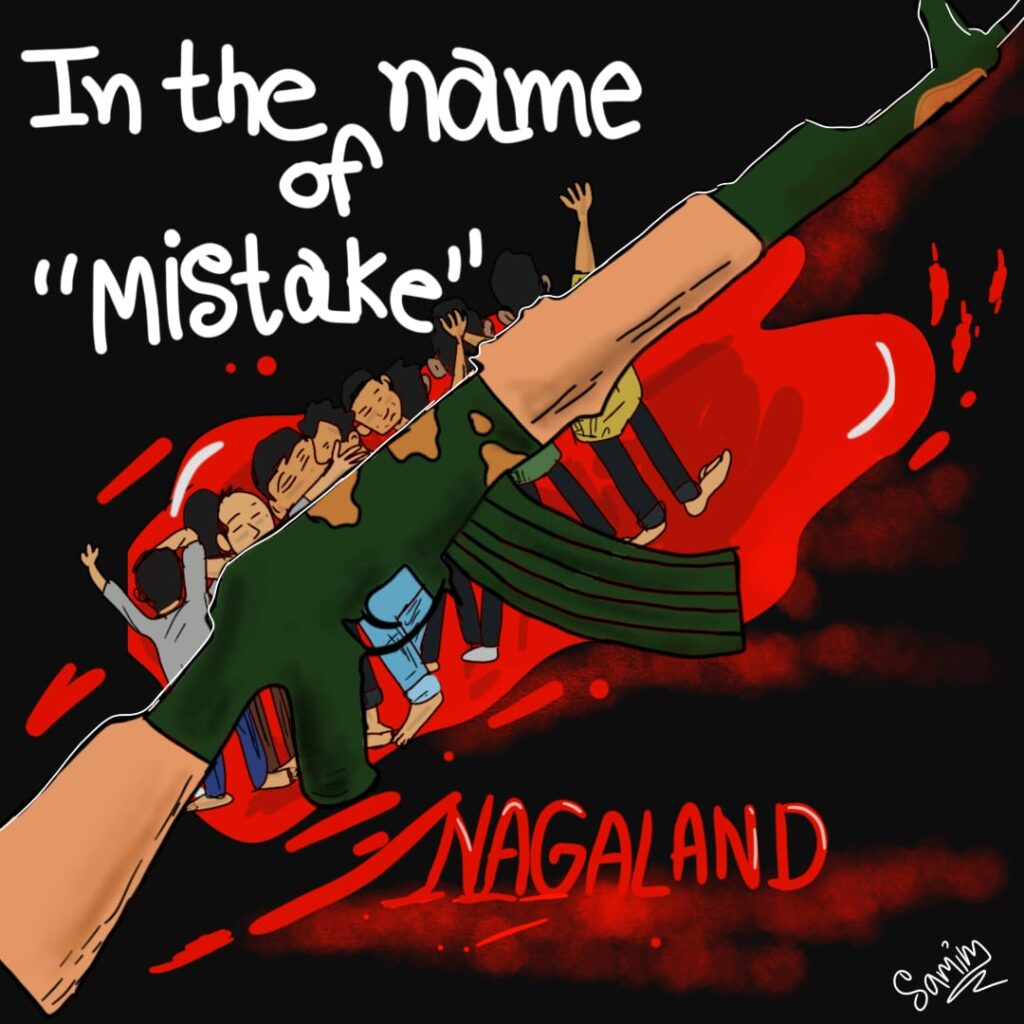
However, unfortunately, it is unlikely that the perpetrators of his heinous crime will be brought to justice anytime soon. The security forces, under the impunity granted by the Armed Forces’ Special Powers Act (AFSPA), have continuously committed murders and other human rights violations in areas that are deemed ‘disturbed’ and have gotten away with it. Prosecution against the accused army personnel cannot take place in a criminal court unless sanctioned by the Central government which is hardly ever the case. This has been witnessed across the North Eastern states and J&K where AFSPA has been in effect, partially or wholly, for decades now. In an area deemed ‘disturbed’ under AFSPA, an officer of the armed forces may injure, detain or kill any civilian or raid houses and confiscate items without any warrant upon ‘reasonable suspicion’. As of now, AFSPA is in force in the states of Assam, Nagaland, Manipur, Arunachal Pradesh and J&K.
Despite repeated criticisms and calls for repeal of AFSPA from varied sections of the society, the changing governments at the Centre have refused to do so. In the past, even the UN had called for India to repeal AFSPA due to the gross human rights violations it fosters and stated that it had no role to play in a democracy. AFSPA and the sedition laws, all of which have its roots in the British colonial rule, work in tandem to crush dissent and deserve no place in the world’s largest democracy. The gruesome incident in Mon, Nagaland has renewed the demand for repeal of AFSPA.
In November 2004, a five-member committee appointed by the Central government had recommended that AFSPA should be repealed. “The Act is a symbol of hate, oppression and an instrument of high handedness,” the committee had said. A similar recommendation was made by the 5th report of the second Administrative Reforms Commission (ARC) as well. The high number of human rights violations that take place under AFSPA, of which a disproportionately large number take place in Kashmir, should be reason enough for the Act to be repealed in a democratic set-up. However, AFSPA remains one of the foremost weapon in the State’s arsenal at crushing dissent and terrorizing civilian populations.
Now, as the demand for AFSPA to be repealed is yet again growing, even from sections within the ruling NDA disposition, we have to hold the military forces accountable for the innumerous crimes they have committed under the impunity of AFSPA. Military actions against civilian populations cannot be justified and such colonial era laws cannot be given any space in the laws of this land.
– Article by Haleem
